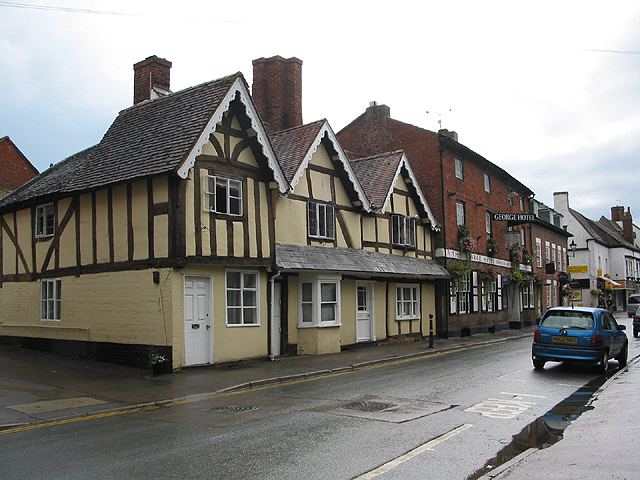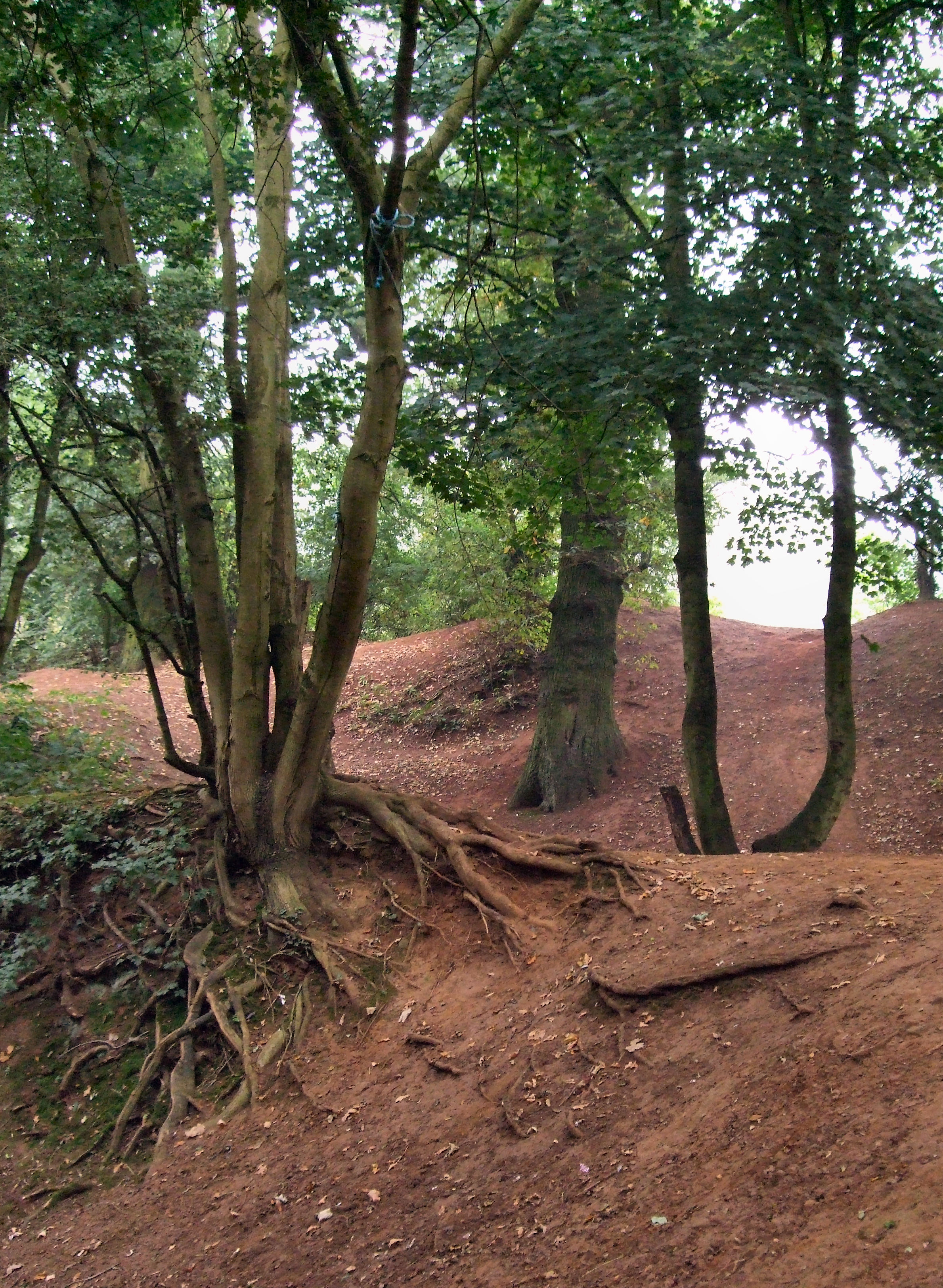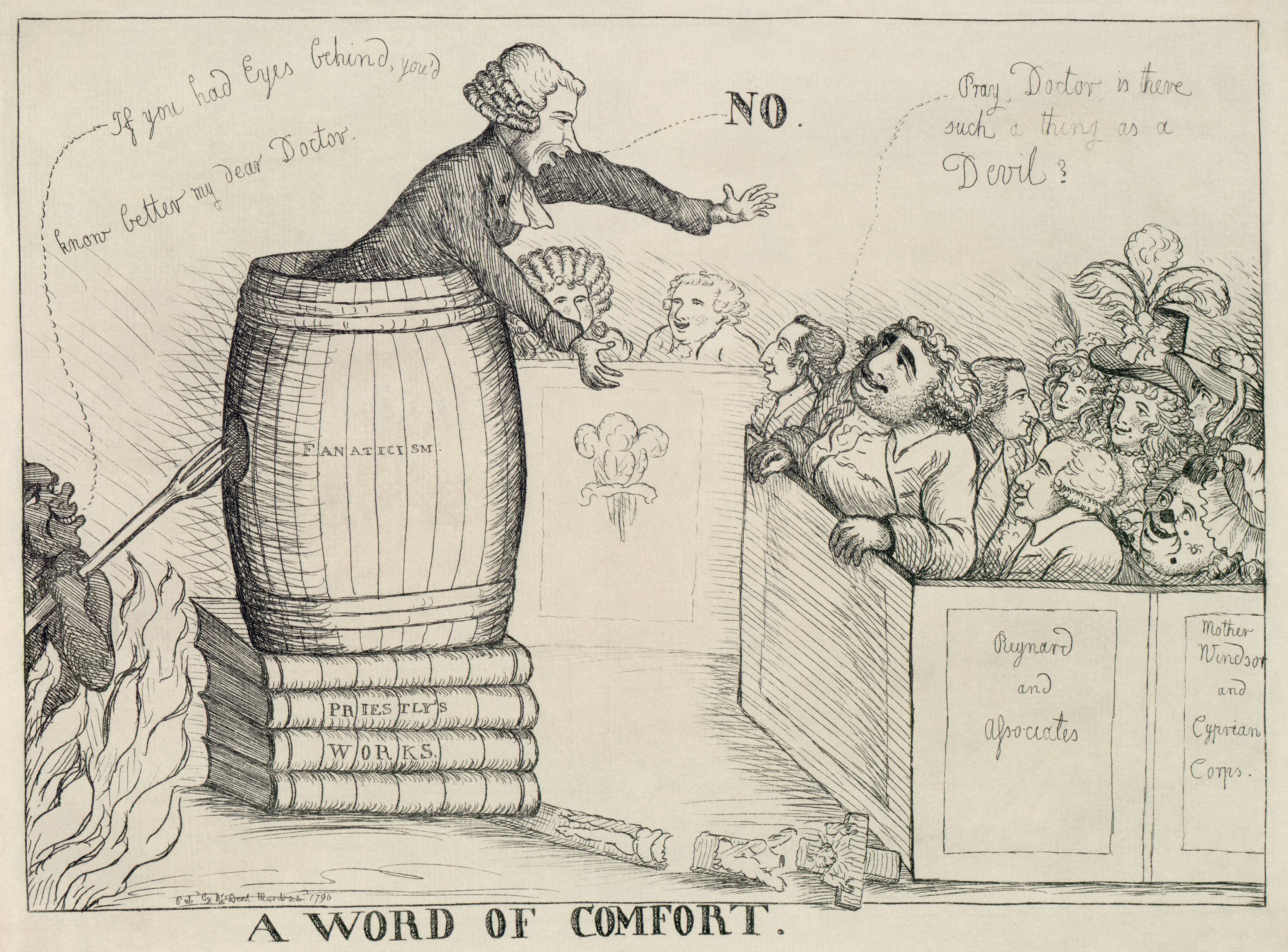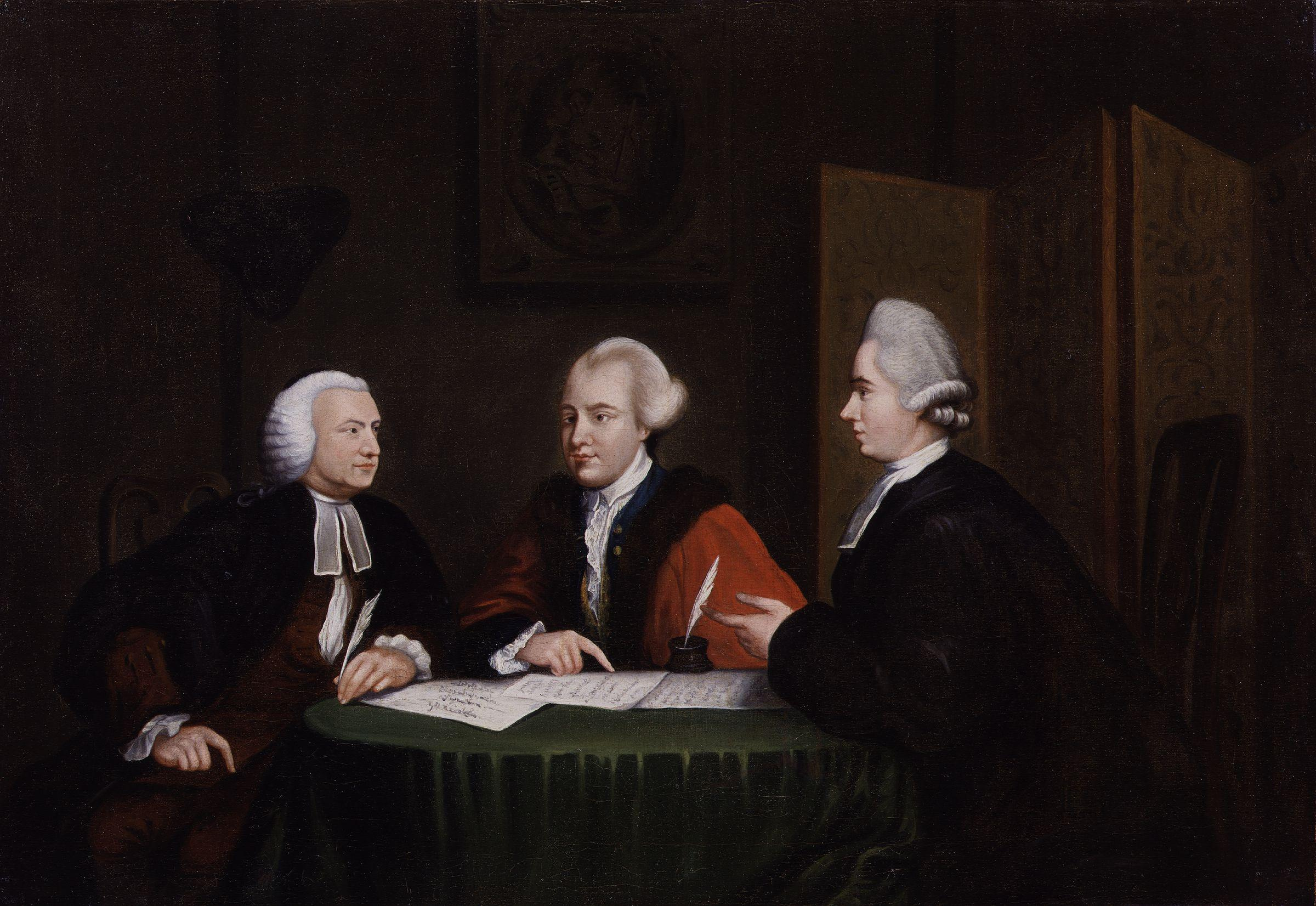|
Edward Bearcroft
Edward Bearcroft, KC (30 April 1737 – 20 November 1796) was an English barrister, judge, and politician. Origins and education Born on 30 April 1737, he was the second son of the Reverend Philip Bearcroft DD, then Preacher later Master of the Charterhouse, and his first wife, born Elizabeth Lovegrove. Educated at Charterhouse until 1752, he then went to Peterhouse, Cambridge and in 1754 began legal studies at the Inner Temple, being called to the bar on 24 November 1758. Legal career He built a respectable and lucrative practice as a barrister, being appointed counsel and steward of accounts to the governors of Charterhouse in 1765 and King's Counsel on 24 July 1772. In the Inner Temple he was a bencher in 1772, reader in 1780 and treasurer in 1781. He appeared in major trials, in 1778 being a defending counsel in the case of R v Baillie, where Captain Baillie was accused of criminal libel and in 1784 he was counsel for the prosecution in the case at Shrewsbury against Willia ... [...More Info...] [...Related Items...] OR: [Wikipedia] [Google] [Baidu] |
King's Counsel
In the United Kingdom and in some Commonwealth countries, a King's Counsel ( post-nominal initials KC) during the reign of a king, or Queen's Counsel (post-nominal initials QC) during the reign of a queen, is a lawyer (usually a barrister or advocate) who is typically a senior trial lawyer. Technically appointed by the monarch of the country to be one of 'His erMajesty's Counsel learned in the law', the position originated in England and Wales. Some Commonwealth countries have either abolished the position, or renamed it so as to remove monarchical connotations, for example, 'Senior counsel' or 'Senior Advocate'. Appointment as King's Counsel is an office, conferred by the Crown, that is recognised by courts. Members have the privilege of sitting within the inner bar of court. As members wear silk gowns of a particular design (see court dress), appointment as King's Counsel is known informally as ''receiving, obtaining,'' or ''taking silk'' and KCs are often colloquially ca ... [...More Info...] [...Related Items...] OR: [Wikipedia] [Google] [Baidu] |
General Election Of 1774
The 1774 British general election returned members to serve in the House of Commons of the 14th Parliament of Great Britain to be held, after the merger of the Parliament of England and the Parliament of Scotland in 1707. Lord North's government was returned with a large majority. The opposition consisted of factions supporting the Marquess of Rockingham and the Earl of Chatham, both of whom referred to themselves as Whigs. North's opponents referred to his supporters as Tories, but no Tory party existed at the time and his supporters rejected the label. Summary of the constituencies See 1796 British general election for details. The constituencies used were the same throughout the existence of the Parliament of Great Britain. Dates of election The general election was held between 5 October 1774 and 10 November 1774. North's ministry pushed for elections to occur in 1774 (instead of the originally planned 1775) in part due to wanting to avoid having an election coincide with ... [...More Info...] [...Related Items...] OR: [Wikipedia] [Google] [Baidu] |
Newent
Newent (; originally called "Noent") is a market town and civil parish about 10½ miles (17 km) north-west of Gloucester, England. Its population was 5,073 at the 2001 census, rising to 5,207 in 2011, The population was 6,777 at the 2021 Census. Once a medieval market and fair town, its site had been settled at least since Roman times. The first written record of it appears in the 1086 Domesday Book. Etymology Noent, Newent's original name, may have meant "new place" in Celtic. It also may mean "new inn", referring to lodgings for travellers to Wales, according to John Leland (c. 1503–1552), who mentioned a house called ''New Inn'', later named ''The Boothall'', which provided lodging along the road to Wales. There was indeed such a house in Lewall Street, owned by members of the Richardson family in the late 18th and early 19th centuries. Lewall Street runs between High Street and Court Lane, north of Broad Street. Geography Newent is on the northern edge of the Forest of D ... [...More Info...] [...Related Items...] OR: [Wikipedia] [Google] [Baidu] |
Northampton
Northampton () is a market town and civil parish in the East Midlands of England, on the River Nene, north-west of London and south-east of Birmingham. The county town of Northamptonshire, Northampton is one of the largest towns in England; it had a population of 212,100 in its previous local authority in the United Kingdom Census 2011, 2011 census (225,100 as of 2018 estimates). In its urban area, which includes Boughton, Northamptonshire, Boughton and Moulton, Northamptonshire, Moulton, it had a population of 215,963 as of 2011. Archaeological evidence of settlement in the area dates to the Bronze Age Britain, Bronze Age, Roman conquest of Britain, Romans and Anglo-Saxons, Anglo-Saxons. In the Middle Ages, the town rose to national significance with the establishment of Northampton Castle, an occasional royal residence which regularly hosted the Parliament of England. Medieval Northampton had many churches, monasteries and the University of Northampton (thirteenth century), ... [...More Info...] [...Related Items...] OR: [Wikipedia] [Google] [Baidu] |
1796 British General Election
The 1796 British general election returned members to serve in the 18th and last House of Commons of the Parliament of Great Britain. They were summoned before the Union of Great Britain and Ireland on 1 January 1801. The members in office in Great Britain at the end of 1800 continued to serve in the first Parliament of the United Kingdom (1801–02). Political situation Great Britain had been at war with France since 1792. The Prime Minister since 1783, William Pitt the Younger, led a broad wartime coalition of Whig and Tory politicians. The principal opposition to Pitt was a relatively weak faction of Whigs, led by Charles James Fox. For four years after 1797 opposition attendance at Westminster was sporadic as Fox pursued a strategy of secession from Parliament. Only a small group, led by George Tierney, had attended frequently to oppose the ministers. As Foord observes "only once did the minority reach seventy-five, and it was often less than ten". Dates of election T ... [...More Info...] [...Related Items...] OR: [Wikipedia] [Google] [Baidu] |
Haiti
Haiti (; ht, Ayiti ; French: ), officially the Republic of Haiti (); ) and formerly known as Hayti, is a country located on the island of Hispaniola in the Greater Antilles archipelago of the Caribbean Sea, east of Cuba and Jamaica, and south of The Bahamas and the Turks and Caicos Islands. It occupies the western three-eighths of the island which it shares with the Dominican Republic. To its south-west lies the small Navassa Island, which is claimed by Haiti but is disputed as a United States territory under federal administration."Haiti" ''Encyclopædia Britannica''. Haiti is in size, the third largest country in the Caribbean by area, and has an estimated population of 11.4 million, making it the most populous country in the Caribb ... [...More Info...] [...Related Items...] OR: [Wikipedia] [Google] [Baidu] |
Christopher Atkinson Saville
Christopher Atkinson (''c.'' 1738 – 23 April 1819), from about 1798 known as Christopher Atkinson Savile or Saville, was an English merchant and politician. Born in Yorkshire, Atkinson moved to London and married the niece of a corn merchant, entering that trade himself at the London Corn Exchange. At the 1780 general election Atkinson was elected as one of the two Members of Parliament for Hedon, but he was expelled from the House of Commons on 4 December 1783, after being convicted of perjury in his dealings with the Navy Victualling Board, and was sentenced to stand in the pillory. Atkinson was granted a royal pardon in 1791, and was again returned to Parliament for Hedon in 1796, holding the seat until he stood down at the 1806 general election. He changed his name to Saville some time after 1798. He then bought extensive properties in Okehampton in Devon, which gave him control of both parliamentary seats of the pocket borough of Okehampton, and at the election of ... [...More Info...] [...Related Items...] OR: [Wikipedia] [Google] [Baidu] |
Test Act
The Test Acts were a series of English penal laws that served as a religious test for public office and imposed various civil disabilities on Roman Catholics and nonconformists. The underlying principle was that only people taking communion in the established Church of England were eligible for public employment, and the severe penalties pronounced against recusants, whether Catholic or nonconformist, were affirmations of this principle. Similar laws were introduced in Scotland with respect to the Presbyterian Church of Scotland. In practice nonconformists were often exempted from some of these laws through the regular passage of Acts of Indemnity: in particular, the Indemnity Act 1727 relieved Nonconformists from the requirements in the Test Act 1673 and the Corporation Act 1661 that public office holders must have taken the sacrament of the Lord's Supper in an Anglican church. Except at Oxbridge, where nonconformists and Catholics could not matriculate (Oxford) or graduate (Ca ... [...More Info...] [...Related Items...] OR: [Wikipedia] [Google] [Baidu] |
John Horne Tooke
John Horne Tooke (25 June 1736 – 18 March 1812), known as John Horne until 1782 when he added the surname of his friend William Tooke to his own, was an England, English clergyman, politician, and Philology, philologist. Associated with radical proponents of parliamentary reform, he stood trial for treason in November 1794. Early life and work He was the third son of John Horne, of Newport Street, Long Acre, Westminster, a member of the Worshipful Company of Poulters. As a youth at Eton College, he had claimed "that his father was an eminent Turkey Merchant, Turkey merchant" implying that, rather than a dealer in poultry, he traded with the Eastern Mediterranean. Before Eton, he had been at school in Soho Square, in a Kentish village, and from 1744 to 1746 at Westminster School. He was blinded in his right eye during a schoolboy fight. [...More Info...] [...Related Items...] OR: [Wikipedia] [Google] [Baidu] |
William Pitt The Younger
William Pitt the Younger (28 May 175923 January 1806) was a British statesman, the youngest and last prime minister of Great Britain (before the Acts of Union 1800) and then first prime minister of the United Kingdom (of Great Britain and Ireland) as of January 1801. He left office in March 1801, but served as prime minister again from 1804 until his death in 1806. He was also Chancellor of the Exchequer for all of his time as prime minister. He is known as "Pitt the Younger" to distinguish him from his father, William Pitt, 1st Earl of Chatham, who had previously served as prime minister and is referred to as "William Pitt the Elder" (or "Chatham" by historians). Pitt's prime ministerial tenure, which came during the reign of King George III, was dominated by major political events in Europe, including the French Revolution and the Napoleonic Wars. Pitt, although often referred to as a Tory, or "new Tory", called himself an "independent Whig" and was generally opposed to the ... [...More Info...] [...Related Items...] OR: [Wikipedia] [Google] [Baidu] |
1790 British General Election
The 1790 British general election returned members to serve in the House of Commons of the 17th Parliament of Great Britain to be summoned after the merger of the Parliament of England and the Parliament of Scotland in 1707. Political situation The Prime Minister since 1783, William Pitt the Younger, led a coalition of Whig and Tory politicians. The principal opposition to Pitt was a faction of Whigs led by Charles James Fox and the Duke of Portland. Dates of election The general election was held between 16 June 1790 and 28 July 1790. At this period elections did not take place at the same time in every constituency. The returning officer in each county or parliamentary borough fixed the precise date (see hustings for details of the conduct of the elections). This was the first general election after the law had been changed in 1785 to limit the maximum duration of polling in county elections to fifteen days. Under the old law, the poll could remain open longer. For example, ... [...More Info...] [...Related Items...] OR: [Wikipedia] [Google] [Baidu] |
Saltash (UK Parliament Constituency)
Saltash, sometimes called Essa, was a "rotten borough" in Cornwall which returned two Members of Parliament to the House of Commons in the English and later British Parliament from 1552 to 1832, when it was abolished by the Great Reform Act. History The borough consisted of the town of Saltash, a market town facing Plymouth and Devonport across the Tamar estuary, and the inhabitants by 1831 were mainly fishermen or Devonport dockworkers. Like most of the Cornish boroughs enfranchised or re-enfranchised during the Tudor period, it was a rotten borough from the start. Saltash was a burgage borough, meaning that the right to vote rested with the tenants of certain specified properties. For a long period in the 18th century, there was a contest for control of the borough between the government and the Buller family of Morval, depending partly on legal uncertainties over the precise number and identity of the burgage properties to which votes were attached. In the 1760s it was cons ... [...More Info...] [...Related Items...] OR: [Wikipedia] [Google] [Baidu] |





